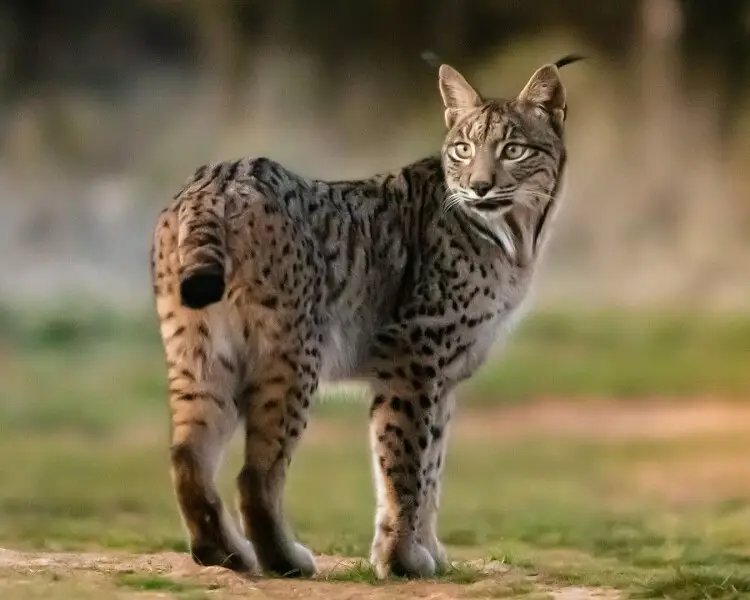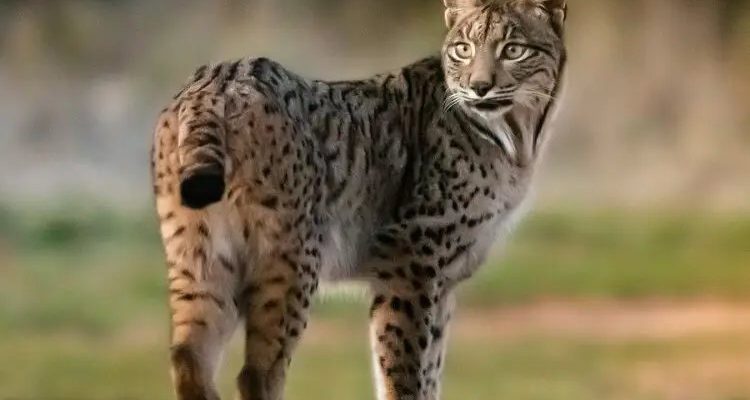
Understanding just how smart the Iberian lynx is means diving deep into its cognitive abilities and unique behaviors. From hunting strategies to social interactions, the way these animals think and act reveals much about their adaptability and survival. So, let’s explore the fascinating world of the Iberian lynx and uncover the secrets behind its intelligence.
Cognitive Abilities of the Iberian Lynx
The Iberian lynx isn’t just another pretty face in the animal kingdom. Its cognitive abilities are impressive, allowing it to thrive in a challenging environment. One of the key aspects of their intelligence is their ability to learn from experience. These lynxes are known to be quick learners, adapting their hunting techniques based on past successes and failures.
Imagine a game of chess where each move teaches you more about the strategy. That’s how the Iberian lynx approaches hunting. For example, if a particular strategy leads to a successful catch, they’ll remember and refine that method for next time. This adaptability is vital, especially in the face of habitat loss and dwindling prey.
Additionally, research has shown that these lynxes can remember locations of prey and navigate their territories effectively. This ability is similar to how humans remember important places, like where we parked our cars or the best spots in our neighborhoods. The lynx’s brain is wired for survival, enabling it to keep track of resources even in dense landscapes.
Hunting Strategies and Problem Solving
When it comes to hunting, the Iberian lynx showcases a remarkable level of problem-solving skills. These cats primarily hunt European rabbits, which are their main food source. However, with prey populations fluctuating due to environmental pressures, the lynx must be resourceful.
Picture a cat stalking its prey. The Iberian lynx exhibits incredible stealth, often hiding and waiting for the perfect moment to pounce. But it doesn’t stop there. They can employ various tactics, such as ambushing or using the terrain to their advantage. For instance, sometimes they’ll leap from low cover, making them less visible to their prey.
But what’s even more fascinating is how they can adapt their hunting style based on the behavior of the rabbits. If the rabbits seem to be avoiding certain areas, the lynx will change its approach, demonstrating a level of foresight many might not expect from a wild animal. This ingenuity is a hallmark of their intelligence.
Social Interaction and Communication
Though often solitary, the Iberian lynx can exhibit complex social behaviors. They communicate through vocalizations, body language, and scent marking, all of which play crucial roles in their interactions with other lynxes.
For instance, during the mating season, males will announce their presence with distinctive calls, often drawing the attention of potential mates. It’s kind of like sending a text message saying, “Hey, I’m here! Check me out!” This vocal communication is essential for finding partners and establishing territory.
Moreover, when raising their young, mothers display incredible nurturing behavior. They teach their kittens essential survival skills—like tracking and hunting—ensuring they grow up to be adept predators. This teaching aspect is reminiscent of how humans pass down knowledge through generations, showcasing a deeper level of intelligence in these cats.
Adaptability to Environmental Changes
The Iberian lynx has faced significant challenges over the years, primarily due to habitat loss and declining prey. Their ability to adapt to changing environments speaks volumes about their cognitive strengths.
In times of scarcity, these lynxes have shown remarkable flexibility. For instance, if rabbit populations fall, they can shift to other food sources, demonstrating not only intelligence but also an instinct for survival. This adaptability is similar to how humans might adjust their diets based on what’s available in the fridge.
Additionally, conservation efforts have provided insights into how these lynxes respond to human encroachment. In areas where they coexist with agricultural activities, some Iberian lynxes have learned to navigate around farms while still hunting effectively. This ability to adjust their behavior in response to environmental pressures is a clear indicator of their intelligence.
Conservation and the Future of the Iberian Lynx
As fascinating as the Iberian lynx is, it’s also a species at risk. Conservation efforts are ongoing to protect their habitat and ensure their survival. These initiatives are not just about preserving a beautiful animal; they’re also about maintaining the ecological balance of their environment.
Conservationists have discovered that smart strategies often hinge on understanding the lynx’s cognitive abilities. For example, using GPS collars helps researchers track lynx movements, allowing for better protection measures. It’s a bit like giving them a smartphone to help navigate their world—only this one helps them survive!
The future of the Iberian lynx depends heavily on our understanding of their behaviors and needs. Engaging in conservation efforts requires us to respect their intelligence and the complex roles they play within their ecosystems.
In conclusion, the Iberian lynx is a great example of wild intelligence in action. From their clever hunting strategies to their adaptability and social behaviors, these cats illustrate a fascinating mix of instincts and learned skills. They’re not just surviving; they’re thriving in a changing world.
Understanding just how smart these animals are allows us to appreciate the intricate web of life they are part of. Protecting the Iberian lynx isn’t just about saving a species; it’s about fostering a deeper respect for the intelligence and adaptability present in nature. So, the next time you hear about the Iberian lynx, remember that there’s so much more to these cats than meets the eye—they’re a vital part of our planet’s narrative of survival and resilience.

